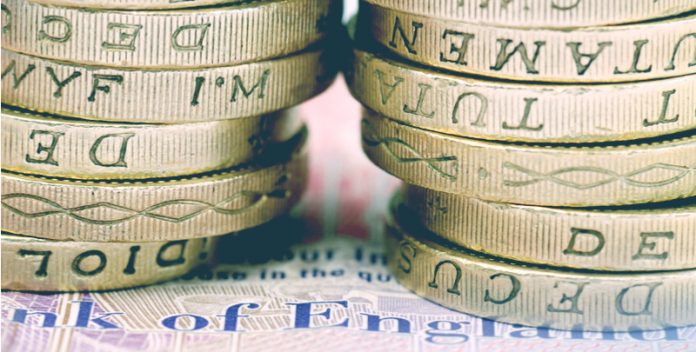Today looks set to be a busy day for both the pound and the euro. Both the UK general election and the European Central Bank (ECB) interest rate decision will be driving the exchange rate. Heading into what could be a volatile day, the pound euro exchange rate was holding steady above €1.1500.
| What do these figures mean? |
|---|
| When measuring the value of a pair of currencies, one set equals 1 unit and the other shows the current equivalent. As the market moves, the amount will vary from minute to minute. |
| For example, it could be written: 1 GBP = 1.13990 EUR |
| Here, £1 is equivalent to approximately €1.14. This specifically measures the pound’s worth against the euro. If the euro amount increases in this pairing, it’s positive for the pound. |
| Or, if you were looking at it the other way around: 1 EUR = 0.87271 GBP |
| In this example, €1 is equivalent to approximately £0.87. This measures the euro’s worth versus the British pound. If the sterling number gets larger, it’s good news for the euro. |
It would seem that the base case for the market is that the Conservatives will win, probably by a small majority. The most recent YouGov polls point to Theresa May and the UK Conservatives winning 334 seats, whilst Jeremy Corbyn and the Labour party are predicted to secure 269. This would mean that the Conservatives would have just an eight seat majority in the UK Parliament. If this poll is roughly correct, then nothing much will change in Parliament. Theresa May won’t win the large majority she was aiming for to help towards a stronger mandate in Brexit negotiations and an overall smoother Brexit. A slim majority could inject fear into the market of a hard Brexit as the 50 or so eurosceptic Conservative MP’s could try to sway negotiations during the Brexit process, making a smooth Brexit a near impossibility. This would, in turn, weigh on the pound.
| Why is a smooth Brexit good for the pound? |
|---|
| A smoother Brexit would be a scenario in which the economic consequences of leaving the European Union are minimised. This is favourable for the pound because the less the Brexit impact on the economy, the more likely that foreign investors will remain interested in the UK. Foreign investors need sterling to invest in the country and so the more GBP is purchased, the higher the demand and, thus, an increase in the currency’s value. |
ECB to make subtle change to wording in opening statement
The European Central Bank (ECB) interest rate meeting is later today. Whilst the central bank isn’t expected to change current interest rate levels, analysts are expecting a subtle change of language in the opening statement and forward guidance. Should the ECB drop any mention of further cuts to the interest rate from its rhetoric, then the euro could receive a boost. Additionally, ECB forecasts for growth in the eurozone could be revised higher for the year; however, the central bank is expected to reiterate that inflation is still not showing any convincing uptrend. Finally, the ECB is expected to stick to its commitment to maintaining interest rates at the current low levels.
The changes in language may seem very small, however these subtle changes would be the first steps towards preparing for a larger move in central bank policy. A move towards tapering the current bond buying programme or an increase in interest rates, are both considered euro positive.
| Why do raised interest rates boost a currency’s value? |
|---|
| Interest rates are key to understanding exchange rate movements. Those who have large sums of money to invest want the highest return on their investments. Higher interest rate environments tend to offer higher yields. So, if the interest rate or at least the interest rate expectation of a country is relatively higher compared to another, then it attracts more foreign capital investment. Large corporations and investors need local currency to invest. So more local currency used then boosts the demand of that currency, pushing its value higher. |
This publication is provided for general information purposes only and is not intended to cover every aspect of the topics with which it deals. It is not intended to amount to advice on which you should rely. You must obtain professional or specialist advice before taking, or refraining from, any action on the basis of the content in this publication. The information in this publication does not constitute legal, tax or other professional advice from TransferWise Inc., Currency Live or its affiliates. Prior results do not guarantee a similar outcome. We make no representations, warranties or guarantees, whether express or implied, that the content in the publication is accurate, complete or up to date. Consult our risk warning page for more details.
This article was initially published on TransferWise.com from the same author. The content at Currency Live is the sole opinion of the authors and in no way reflects the views of TransferWise Inc.





